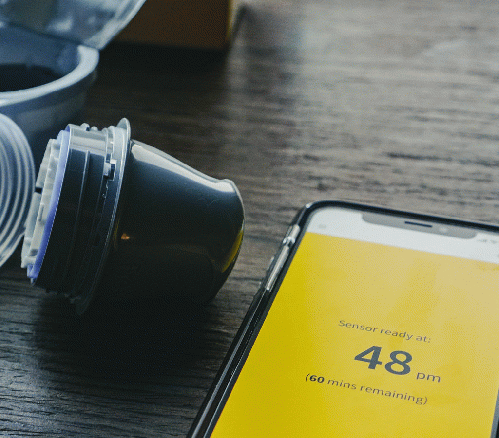 Jose Calvo: Wearable Diabetes Treatments Showcased at CES 2020 Two new wearable diabetes treatments were at CES 2020. We cover their advantages and limitations. |
 Eric Silver: Virtual Therapy: The Future of Health is Here As technology constantly improves, it continues to disrupt every industry. Therapy is no different. How will technology affect the massive mental health category? |
Lewis Mehl-Madrona: Heroes, Joseph Campbell, and Jordan Peterson
The hero's journey begins with the call to adventure. Jordan Peterson writes that life exists within explored and unexplored territory both inside and outside of the mind. A narrative crisis occurs when our story (map of meaning) is inadequate to explain an anomaly. Heroism sets the hero apart from the group. Identification with the hero serves to decrease the unbearable motivational valence of the unknown. 1 |
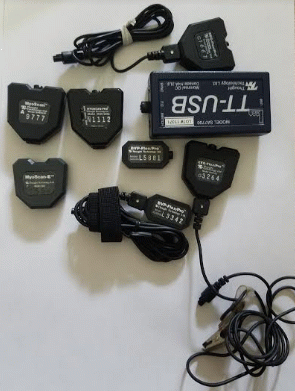 Rob Kall: Futurehealth Spring Cleaning Sale- over 100 items Futurehealth has accumulated many items over its 36 years in business. We're doing a spring cleaning sale offering over 80 different items-- hardware, software, EEG electrodes, cables, stand-alone instruments, computer hardware-- EEG, EMG, Thermal, GSR, EEG electrode checkers, books, CDs, DVDs. |
Carol-Ann Hamilton: Coping with Grueling Eldercare: 7 Survival Tips You Need to Know
Find out the shocking health and relationship impacts those who care for aging parents encounter and what to do to safeguard your own life. 1 |
Lewis Mehl-Madrona: Suicide Prevention -- Does it Work?
Are psychiatric services successful in preventing suicide or do we actually cause more suicides than would otherwise happen. We create a culture of helplessness in which people expect rescue and do not believe they are in control of their actions. They can attempt suicide thinking they will be saved, but can miscalculate and accidentally die. An Australian man stopped 160 suicides by giving people breakfast. Is this better? 1 |
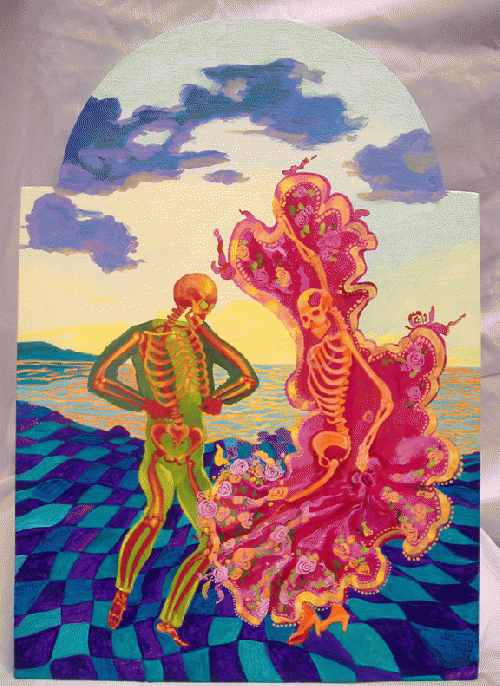 Lewis Mehl-Madrona: Working to Recover, or Adjusting to Illness? Existing research is pessimistic about the value of our currently dominant biomedical paradigm for treating mental illness. Long-term antipsychotic use appears to make people worse rather than better. While the research continues to accumulate, practice does not change. Doctors continue to practice as if psychosis comes from lack of medication. People recover without medications. How do we reconcile these two models? 1 |
Lewis Mehl-Madrona: The difficulty of practicing narrative medicine
I look at the stories that people hold about their lives that sometimes work against them. I tell the story of a driven man whom I warned 25 years earlier that he might drop dead if he didn't take a break, and discover that he did, in his fifties. I discuss the problems we face in medicine, how to help people change their stories that are leading them toward illness. This is one of the hallmarks of narrative medicine. 1 |
Lewis Mehl-Madrona: Can We Reinvent Ourselves?
I ask the question, can we reinvent ourselves? I believe we can by becoming aware of the stories that we have absorbed which tell us how to live our lives. Through our interaction with others, we can modify those stories to become more effective and satisfying. We absorb stories through being born into a family, a place, a culture. We habitually perform those stories because we don't know better. 2 |
|
Tsara Shelton: Because my Mom was Autistic our Answer was Autism
Most lives have recurring themes. Baseball, cancer, music, science, sexual abuse etc. Most families can point to things they have experienced and learned from over and over. It doesn't have to be something that happens all the time, but something that continually teaches or challenges. Our family has had a few themes, the loudest being autism. In this article I share a few of the life lessons autism challenged us to learn. 1 |
Lewis Mehl-Madrona: Talking to Animals; what's the point?
We reflect on the winter buffalo hunt ceremonies of the Northern Plains and the ways in which humans communicated with animals, negotiating with them to cooperate in being hunted. This leads us to modern day attempts to communicate with animals, including studies from Northern Arizona University that decode the meaning of prairie dog chirps and efforts to talk to the great apes. We ask what is the point? What do learn? 2 | |
|
Lewis Mehl-Madrona: Finding Magic in a Muggle World
What is magic in a muggle world? We recently conducted a workshop to explore that question. First, what arose was the idea our thoughts could influence the future to which we are headed. What if our visualizations could change the direction in which we are headed. What is really magic is the power we have to influence others. We have power to uplift. We have power to give hope when there is none. This is real magic. 3 |
Lewis Mehl-Madrona: Defining Coyote Psychotherapy
In the recent meetings of the Institute for Psychiatric Services in San Francisco, Barbara Mainguy and I presented material on how we work with psychosis. We are exploring what it is that we do, and we know that it is inspired by indigenous elders, that it is centered on the body, which registers our traumas and stresses, that we are wedded to the idea of story occurring in a social context so that we are embedded with others. 1 |
Lewis Corbitt: How Technology is Assisting and Aiding Patients with Traumatic Brain Injuries (TBI)
Blast injuries from Improvised Explosive Devices (IEDS) and other forms of blasts and explosions have caused closed head injuries and trauma to over 178,000 service men and women serving in our wars in Iraq and Afghanistan. These injuries are called Traumatic Brain Injuries (TBI). The future of treatments and aids to patients suffering from TBI, and to include a possible cure for TBI lay in interactive technology. 1 |
|
Helen Gibbons: The 6 Hour Solution to Work stress
Helen Gibbons, Chief Psychologist and pioneer of Autogenic Training in Australia,discusses the benefits of Autogenic Training in combating work stress, particularly in the Mining and other high risk industries. Developed by German Neuroscientist Dr Schultz, AT is backed by over 3,000 clinical studies worldwide and is used by NASA astronauts to help them adapt to the physical and psycholocial stressors of space travel. 1 |
Catherine Al-Meten: Waking from the Trance of Unworthiness
Article about using meditation as a way to deal with unworthiness and self hatred. |
Frank J. Granett R.ph.: A Mother's Auto-antibodies: Indicator for autism and ADHD
Link between auto-antibodies in mothers and cases of autism and ADHD in children. |
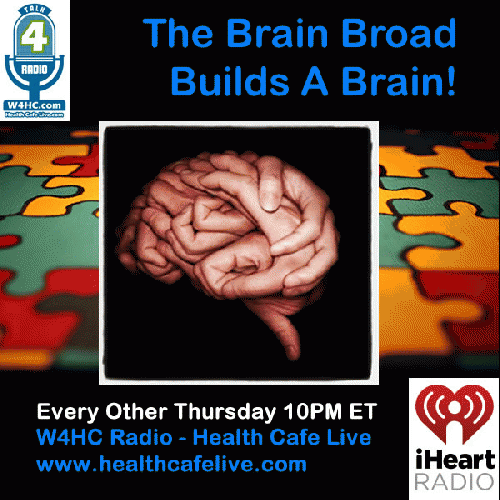 Tsara Shelton: The Brain Broad Builds A Brain: New Podcast Sheds Light On Mental Health Lynette Louise aka The Brain Broad (aka my mom) has a brand new podcast. Inviting a different guest with a history of brain knowledge for every episode, together they'll explore a mental disorder chosen at random. With creativity, brain science, and out of the box thinking they discuss what might be done to help that brain using all the tools in their toolbox. |
Rob Kall: The Hero's Journey and The Biofeedback Neurofeedback Practitioner's and Client's Stories Here's a short summary of my take how story and the Hero's Journey plays an integral role in biofeedback: |
Lewis Mehl-Madrona: Bringing Magic Back to a Muggle World
We need to bring magic back into our modern, materialistic world. While ultimately magic will have a scientific description, it will probably take place at the quantum level, which few of us can understand. Therefore, we are left to marvel at the way energy moves matter, at how our participation in each others electrical fields of our hearts creates coherence and even health and well-being. We are left to wonder and awe. 1 |
|
Lewis Mehl-Madrona: How we treat is more important than the treatment!
The way we relate to people is more important than what we do in both medicine and psychiatry. Randomized, clinical trials of the drug, citalopram, for geriatric depression, for example, showed that where a patient got treated mattered more than what drug they received. The response rate to citalopram varied from 16% to 82% among 15 hospitals. The time is nigh to improve the human elements in what we do be more helpful. 2 |
 Vijayaraghavan Padmanabhan: Becoming Aware of Mind-Body-Spirit Medicine The development from Era 1 to Era 2 medicine emphasizes that we are not the body alone; we are mind-body entities. Era 3 medicine indicates that we are not confined to our mind-body; we are mind-body-spirit entities. As is the belief, so is the practice. If the physician believed that he was a mind-body-spirit entity, he would suggest the attitude of 'prayerfulness' by those concerned with the patient. 1 |
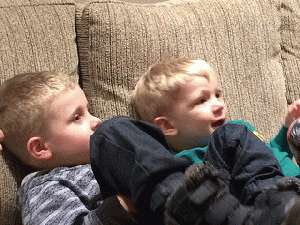 Frank J. Granett R.ph.: The Price of ADHD Business The Price of ADHD Business focuses on the outdated assessment and treatment process in children for behavioral conditions during the past 40 years. The new business model involves ruling out underlying nutritional, physiological and environmental risk factors prior to premature drug therapy. The symptoms of ADHD are real and can be uncovered as described in Over Medicating Our Youth and The American Epidemic. |
|
Tsara Shelton: Discovering Intention and Teaching to Learn: Sharing a Story
I often wonder who I would have become if I never had children. It is through them and my desire to be who I would ask them to be that I have truly insisted on getting to know and like myself. In this story I remember a moment when, challenged by a stranger, I was gifted with an opportunity to discover my own belief. And in this moment I became a better mom, friend, and citizen. 2 |
Lewis Mehl-Madrona: Avatars and Hearing Voices Therapy
Recently we've learned about a computer assisted process for dialogue with disembodied, persecutory voices. In this process, developed by Dr. Julian Leff, a psychiatrist at University College, London, voice hearers pick a sound for their voice and a face which becomes an avatar on the computer screen. Then the facilitator helps them to dialogue with the avatar to oppose it. The results are very impressive. 1 |
Lewis Mehl-Madrona: To Do and Not To Be
I reflect upon the importance of doing, what is called behavioral activation. In order to change, we need to do things differently, and not just think about doing things differently. Unfortunately, conventional medicine has supported a narrative which tells us that we do not have to make an effort to change our behavior, so people who are depressed or anxious don't believe they need to do anything. We need to change this. |
|
Lewis Mehl-Madrona: Day 8 of Australia 2013: Bairnsdale
On the next to the last day of our Australian cross-cultural journey we visit our friend Wayne, who's now the Koorie Liaison Officer for AdvanceTAFE, an educational concern in Victoria. Our focus for the workshop that Wayne arranged for us was to consider how to better use culture to address problems in the community. The problems were the usual suspects -- drugs, alcohol, violence, gambling. What happens under colonization 1 |
Lewis Mehl-Madrona: Day 7 of Australia 2013: Hearing Voices and Mind Mapping
Day 7 found us working with the Prahran Mission's Hearing Voices Victoria about indigenous and narrative approaches to voices. We demonstrated the use of what I call mind mapping with the various voices we hear inside our minds. This technique works for everyone, voice hearers or not, for we all hear talk inside our heads, the question being where we think it's coming from. In mind mapping we identify the talk and talkers. 1 |
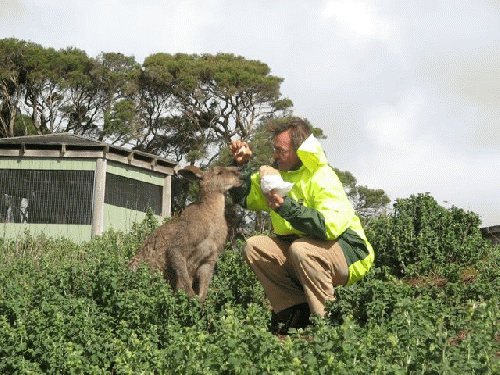 Lewis Mehl-Madrona: Day 6 of Australia 2013: Hearing Voices 1 Day 6 finds us in Melbourne and back from the bush. I include some pictures from the bush. In Melbourne we are doing a presentation with the Hearing Voices Group of Victoria about indigenous approaches to voices. We started the day by explaining our approach to voices which is to give them full ontological status and dialoging with them to learn why they have come and what they want. We did experiential exercises after. |

|
Articles |
